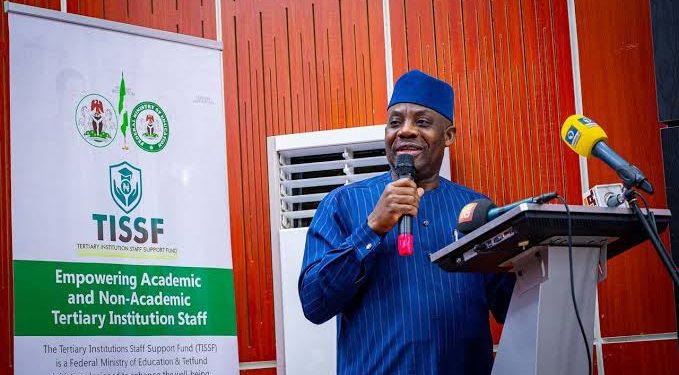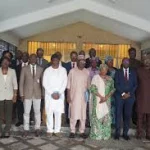The Federal Government has completed a sweeping review of the national curriculum for basic, senior secondary, and technical education, introducing a new framework designed to reduce content overload, strengthen practical learning, and equip students with skills that meet global demands.
The announcement came through the Federal Ministry of Education, with the Minister of State for Education, Professor Suwaiba Said Ahmad, explaining that the review was carried out in collaboration with the Nigerian Educational Research and Development Council (NERDC), the Universal Basic Education Commission (UBEC), the National Senior Secondary Education Commission (NSSEC), and the National Board for Technical Education (NBTE).
Under the revised framework, pupils in Primary 1–3 will now take between nine and ten subjects. Those in Primary 4–6 will take ten to twelve subjects, while Junior Secondary School (JSS) students will take twelve to fourteen subjects. Senior Secondary School (SSS) students will have eight to nine subjects, and technical school students will take nine to eleven subjects. The ministry explained that the changes are not only about reducing the number of subjects but also about improving the quality of content to encourage deeper learning.
Professor Ahmad stressed that the reforms were developed to reduce overload and allow more time for practical learning, adding that the new curriculum is “future-ready” and aligned with the government’s commitment to preparing Nigerian students for a competitive global workforce.
The Ministry assured that implementation will be nationwide, with strict monitoring to ensure smooth transition and effective adoption in schools. It commended the teamwork of all stakeholders, describing the revision as a milestone toward building a stronger education system.
This latest review comes after more than a decade of stagnation. Nigeria’s secondary school curriculum was last revised in 2011 and had remained unchanged until reform discussions resumed in 2024. At the time, the Ministry announced plans to implement a new framework in September, noting that the previous cycle of updates was too slow for a fast-changing global environment.
In January 2025, government introduced fifteen new vocational and trade subjects into the basic education curriculum, including plumbing, event management, digital literacy, solar installation, garment making, and agriculture, to give young people a blend of academic and entrepreneurial skills. The following month, discussions at the National Council on Education raised the prospect of shifting from the traditional 9-3-4 structure to a 12-year basic education model. Advocates of this change argued it would create a more continuous and globally competitive system, though teachers’ unions dismissed it as a distraction from the real issue of chronic underfunding in the sector.
Education experts note that while curriculum reform is crucial, success will depend on whether the government can address persistent challenges such as poor infrastructure, inadequate teaching materials, and recurrent industrial actions that disrupt learning. Without adequate financing, they argue, even the most modern curriculum risks failing to achieve its goals.
The government insists that with stricter monitoring and stronger partnerships between agencies, schools, and communities, the new curriculum will usher in a more practical, skills-driven education system capable of preparing Nigerian learners for the demands of the future economy.










